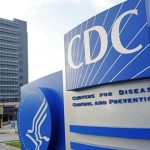The CDC says it still doesn’t know how long vaccine immunity and protection will last or how well vaccines work against new variants of COVID-19

The rollout of the vaccines began in December 2020. As of Sunday, about 140 million people — 42.2% of the population — have received at least one dose of a Covid-19 vaccine. Another 95 million people — about 28.5% of the population — have been fully vaccinated, according to the data from The Centers for Disease Control and Prevention (CDC).
On Tuesday, the CDC announced that fully vaccinated people can now go outdoors without masks. However, the agency still recommends that fully vaccinated people wear a mask in outdoor spaces where the risk of Covid-19 is less clear. Those include sporting events, crowded events like concerts, parades, and other crowded places.
For the purpose of the guidance, the CDC defines fully vaccinated as “people who have been vaccinated for two weeks or more after they have received the second dose in a 2-dose series (Pfizer-BioNTech or Moderna), or ≥2 weeks after they have received a single-dose vaccine (Johnson and Johnson (J&J)/Janssen).”
Today, the CDC released its updated interim public health recommendations for fully vaccinated people. Months after the rollout, the CDC still doesn’t know how long the vaccine immunity and protection will last or how well the vaccines work against the new variants of COVID-19.
Buried deep down in the agency’s recommendations is a new shocking revelation about the question everyone has been asking: How long will the vaccine protection last? To answer this question, the CDC said the following on its website:
“How long vaccine protection lasts and how much vaccines protect against emerging SARS-CoV-2 variants are still under investigation.”
The CDC went on to say that, “Until more is known and vaccination coverage increases, some prevention measures will continue to be necessary in some settings for all people, regardless of vaccination status.”
That’s not all. For immunocompromised people that have taken the vaccines, the CDC noted that “there are limited data on vaccine protection at this time for this group of people.”
In other words, there is no guarantee that the vaccine will be 100% effective for this group of people until the agency receives more data. The CDC defines the immunocompromised group as “people with immunocompromising conditions, including those taking immunosuppressive medications (for instance drugs, such as mycophenolate and rituximab, to suppress rejection of transplanted organs or to treat rheumatologic conditions).”




